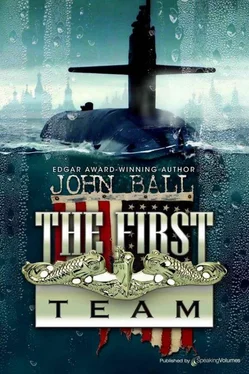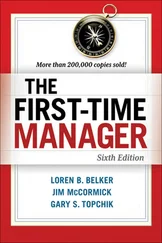Джон Болл - The First Team
Здесь есть возможность читать онлайн «Джон Болл - The First Team» весь текст электронной книги совершенно бесплатно (целиком полную версию без сокращений). В некоторых случаях можно слушать аудио, скачать через торрент в формате fb2 и присутствует краткое содержание. Год выпуска: 2013, Жанр: Триллер, на английском языке. Описание произведения, (предисловие) а так же отзывы посетителей доступны на портале библиотеки ЛибКат.
- Название:The First Team
- Автор:
- Жанр:
- Год:2013
- ISBN:нет данных
- Рейтинг книги:5 / 5. Голосов: 1
-
Избранное:Добавить в избранное
- Отзывы:
-
Ваша оценка:
- 100
- 1
- 2
- 3
- 4
- 5
The First Team: краткое содержание, описание и аннотация
Предлагаем к чтению аннотацию, описание, краткое содержание или предисловие (зависит от того, что написал сам автор книги «The First Team»). Если вы не нашли необходимую информацию о книге — напишите в комментариях, мы постараемся отыскать её.
Student protesters are being slaughtered in the Midwest.
The Jewish pogroms have begun.
You are now living in Soviet — occupied America!
One nuclear submarine and a handful of determined patriots against the combined might of Russia and Soviet-occupied America… The Most Explosive and Gripping “What If” Novel of Our Time!
First published January 1971
The First Team — читать онлайн бесплатно полную книгу (весь текст) целиком
Ниже представлен текст книги, разбитый по страницам. Система сохранения места последней прочитанной страницы, позволяет с удобством читать онлайн бесплатно книгу «The First Team», без необходимости каждый раз заново искать на чём Вы остановились. Поставьте закладку, и сможете в любой момент перейти на страницу, на которой закончили чтение.
Интервал:
Закладка:
He looked up. “I will try,” he said.
“Thank you, senator.”
As she rose to her feet Fitzhugh got up also. He looked at her and appraised her once more. “Since I am now committed,” he added, “is it proper for me to ask you who you are?”
She studied him for a moment or two. “It would be much better if you did not,” she answered, “but since I have asked something of you, I will give you something in return. You understand that I am trusting you with my life.”
He thought of the submarine and the fearful authority that it represented. “I will protect it with my own,” he promised.
“Very well, Senator Fitzhugh, I accept that. I am Sally Bloom’s mother.”
19
In the budding first light of the very early morning the U.S.S. Dolly was moving forward slowly in a gentle sea. She was in far northern waters, a long way from her home port, her holds partially filled with the catch of the past many days. Her luck had been only fair, which made it very clear why she had sought out fresh grounds if anyone was curious.
The water was an iron gray, devoid of color and seemingly without an end to its vastness. The Dolly rolled slightly under a leaden overcast sky, a cumbersome and unsophisticated vessel built for prosaic work and unendowed with glory. On this morning, despite her plodding nature, there was a fresh trimness aboard her; her entire crew was up and briskly about. On the bridge her navigator was keeping his chart minutely up to date. He had made his last celestial observations some hours before, then the overcast had forced him to continue on with dead reckoning and LORAN. Despite the almost limitless expanse of water that surrounded him in every direction, he was holding the ship to very close tolerances with the maximum accuracy that his available resources would permit. On the fantail the Officer of the Deck held his binoculars before his eyes; standing to his left a signalman was ready, his two flags in his hands.
Overhead, on top of the mast, the radar antenna revolved relentlessly, sweeping both the surface of the ocean and the sky above it with unbroken diligence. On the bridge the captain and his executive officer were both on hand. The captain too was maintaining a lookout while Lieutenant Jimmy Morton, all business at this critical time, kept a close watch over the ship’s chronometer and the navigator’s chart directly below it. Lieutenant Hanson stood by, waiting as was everyone else with everything for which he was responsible in readiness. The Dolly rolled steadily, making only five knots at reduced speed.
“Minus ten minutes,” Lieutenant Morton reported.
The captain heard, but gave no acknowledgment as he continued to study the sea around him. Every few moments he glanced at the radarscope; once he was uncertain and looked inquiringly at the operator.
“No contact, sir,” the man responded without taking his attention off the face of the tube for more than a second or two.
The ship’s cook arrived on the bridge with fresh coffee and a plate of rolls. Morton accepted a cup automatically and sipped from it as he watched the navigator plot a minute change in the ship’s position. The near scalding brew that he drank black awakened his throat lining, then he could feel it enter his stomach. He set the cup in its rack, looked once more at the chronometer and waited a few seconds more. “Minus five minutes, sir.”
“Pass the word,” the captain directed.
Lieutenant Hanson heard him and responded. “Minus five minutes,” he called down to the deck. The signalman standing close to the stern shrugged his shoulders to loosen the muscles in his arms. His feet were carefully planted to absorb the rolling of the ship, his attention kept fixed on the surface of the water.
The Dolly plodded on, quartering the gentle wind that was moving the water. Everything else aboard her seemed still, only the steady turning of the radar antenna gave a definite sign of life. The officer of the deck removed his binoculars for a moment to wipe his eyes with his sleeve; then resumed his watch.
“Three minutes, sir.” Morton reported to the captain.
“Position?”
“Within five hundred yards, sir,” the navigator answered. He did not qualify it; the captain knew that his celestial work had been forestalled by the overcast.
“Carry on.”
“Ay, sir.”
The sweep second hand of the chronometer began another measured circuit of the dial.
“Contact!” the officer of the deck shouted without removing the glasses from his eyes.
The signalman leaned forward and strained his vision; it took him several seconds until, far back in the path of the wake, he was able to make out what could have been the tip of a periscope.
“Identify,” the OD ordered.
The signalman snapped his arms up and crossed his flags above his head. Then, rapidly and precisely, he wigwagged out the letters L-O-W-B-L-O-W.
Three seconds later through his binoculars the OD began to read out the first of a series of irregular flashes of light that appeared close to the top of the periscope tube. When he had finished he turned and carefully avoiding dramatics called forward. Lieutenant Hanson relayed the message to the captain. “Sir, the OD reports confirmation, it’s Magsaysay.”
“Radar?” the captain asked.
“Negative, sir.”
“Keep your eyes on that tube.”
“Yes, sir.”
“Mr. Hanson, advise Magsaysay that the radar shows all clear.”
“Ay, sir.” The word was passed and the signalman spelled out the message. Presently the reply came back. “Magsaysay will surface, sir, and come alongside.”
The captain of the Dolly received that decision with gratitude, it would make things a little easier, although he had been prepared to go either way. He checked first that his ship was maintaining course and speed, reaffirmed the radar finding, and then allowed himself the luxury of watching aft for a few moments.
In the wake of the fishing vessel the tube of the periscope grew taller. Then there was a break in the pattern of the water and a black object could be seen slowly appearing. It grew higher until numbers appeared and it could be identified as the sail of a submarine. As the captain of the Dolly watched, the black object continued to emerge from beneath the water like a process sequence in a science fiction movie. Then the water broke well forward of the sail as the main hull began to appear; nearly four hundred and forty feet long, the Magsaysay contrasted almost violently with the unimaginative but sturdy Dolly.
As she began to close the distance between herself and the Dolly, the Magsaysay sliced through the water as though the minor swell did not exist. Presently men appeared on her bridge, men who in no way suggested that they had had no food for more than three days. They looked crisp and professional in the poopie suits which had been developed for comfort during long submerged cruises.
As the Dolly held her heading with all of the precision of which she was capable, the Magsaysay gradually overtook her on the starboard side until the bow of the submarine almost reached amidships of the fishing vessel. Because of the very low profile of the nuclear ship there was no venturi effect to draw the two of them together, but the maneuvering was delicate nonetheless. On the Dolly the crew was rapidly uncovering the hatches; the derrick operator readied his equipment.
On the curved, black, wet deck of the submarine a forward hatch came open. Three men came out rapidly and positioned themselves around the opening. One of them threw a light line expertly across the Dolly; it was retrieved and a telephone cable was pulled across the short distance that separated the two ships.
Читать дальшеИнтервал:
Закладка:
Похожие книги на «The First Team»
Представляем Вашему вниманию похожие книги на «The First Team» списком для выбора. Мы отобрали схожую по названию и смыслу литературу в надежде предоставить читателям больше вариантов отыскать новые, интересные, ещё непрочитанные произведения.
Обсуждение, отзывы о книге «The First Team» и просто собственные мнения читателей. Оставьте ваши комментарии, напишите, что Вы думаете о произведении, его смысле или главных героях. Укажите что конкретно понравилось, а что нет, и почему Вы так считаете.












